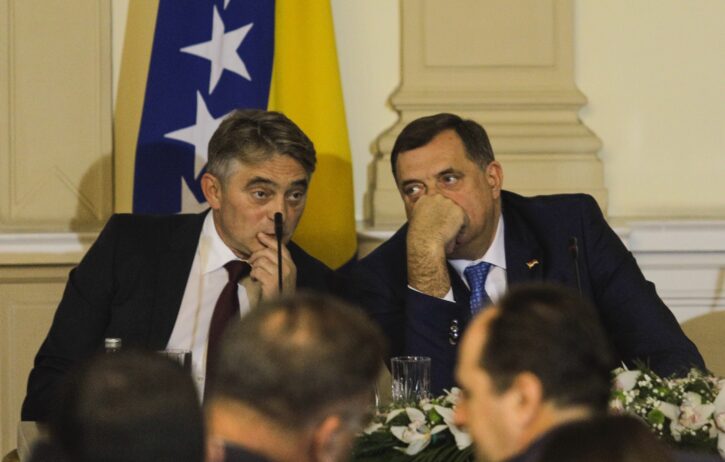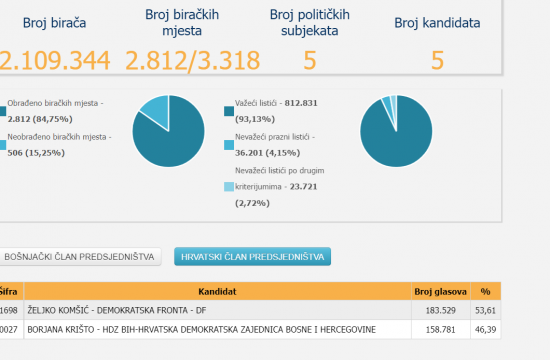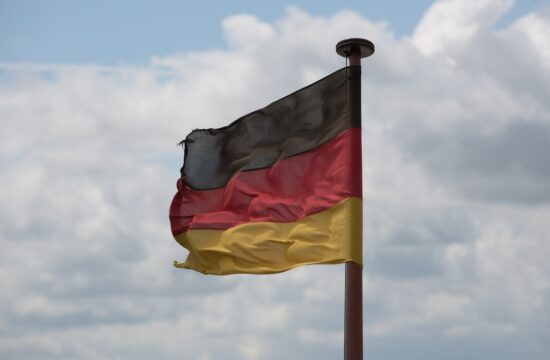
Milorad Dodik, the Serb member of Bosnia's tripartite Presidency, announced on Monday he would send a request for the relocation of the Embassy of Bosnia and Herzegovina from Tel Aviv to Jerusalem, which sparked the reaction of Croat Presidency member Zeljko Komsic who called this idea “hypocritical.”
“This comes from a man on the American blacklist. Dodik would like to be against the NATO, object the Bosnian-US partnership against terrorism, reject the American observers in elections, so there is no single man in Bosnia and Herzegovina that object the American interests more than him,” said Komsic.
“In this way, he is trying to cover up his conflict with the US administration and there is no talk about such populist proposals,” underlined Komsic.
Dodik's proposal comes days after the Belgrade-Pristina deal signed in Washington in presence of US President Donald Trump, which among other issues include Serbia's commitment to opening of commercial offices in Jerusalem this month and relocation of Serbia's Embassy to Jerusalem.
#related-news_0
“It would be good for Republika Srpska (Bosnia's Serb-majority region) and I may send a request to the Presidency of Bosnia and Herzegovina today already to adopt a decision and relocate the Embassy of Bosnia and Herzegovina from Tel Aviv to Jerusalem,” Dodik said.
“Because that's obviously a high interest of the USA, which we had a chance to see the other day during the talks between (Serbian President Aleksandar) Vucic and others there. Why wouldn't we do the same if we care about the American support,” he stressed, addressing a session of Republika Srpska National Assembly.
Dodik also said he would speak about this matter to US special envoy for the Western Balkans Matthew Palmer, who is arriving on Wednesday.
The third, Bosniak Presidency member Sefik Dzaferovic also assessed the idea as populist, adding that this won't be on the Presidency session agenda.
While the Croat and Bosniak Presidency members are elected in the Federation (FBiH), Bosniak-Croat shared semi-autonomous region, the Serb member wins votes in Republika Srpska, the Serb-dominated region.






